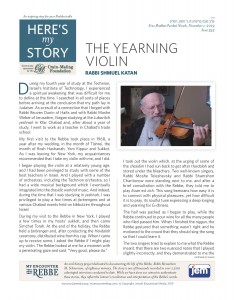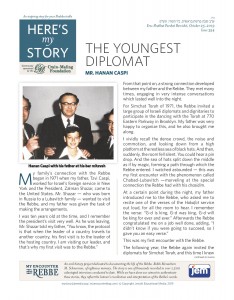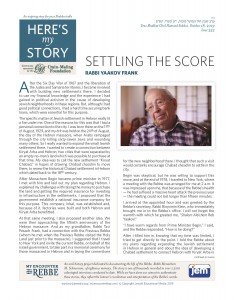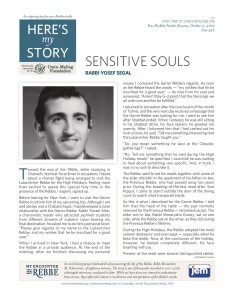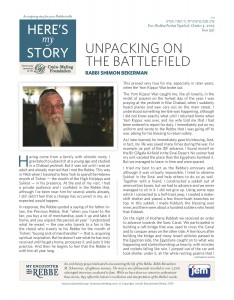The Yearning Violin
During my fourth year of study at the Technion, Israel’s Institute of Technology, I experienced a spiritual awakening that was difficult for me to define at the time. I searched in all sorts of places before arriving at the conclusion that my path lay in Judaism. As a result of a connection that I forged with Rabbi Reuven Dunin of Haifa, and with Rabbi Moshe Weber of Jerusalem, I began studying at the Lubavitch yeshivah in Kfar Chabad. And, after about a year of study, I began to work as a teacher in the Chabad trade School, and then got married.
My first visit to the Rebbe took place in 1968, a year after my wedding, in the month of Tishrei, the month of Rosh Hashanah, Yom Kippur and Sukkot. As I was leaving for New York, my acquaintances recommended that I take my violin with me, and I did.
I began playing the violin at a relatively young age, and I had been privileged to study with some of the best teachers in Israel. And I played with a number of orchestras, including the Technion orchestra, so I had a wide musical background which I eventually integrated into the chasidic world of music. And indeed, during the time that I was studying in yeshivah, I was privileged to play a few times at farbrengens and at various Chabad events held on kibbutzim throughout Israel.
During my visit to the Rebbe in New York, I played a few times in my hosts’ sukkah, and then came Simchat Torah. At the end of the holiday, the Rebbe held a farbrengen and, after conducting the Havdalah ceremony, distributed wine from his cup. When I came up to receive some, I asked the Rebbe if I might play my violin. The Rebbe looked at me for a moment with a penetrating gaze and said, “Very good, please.”
I took out the violin which, at the urging of some of the chasidim I had run back to (more…)


